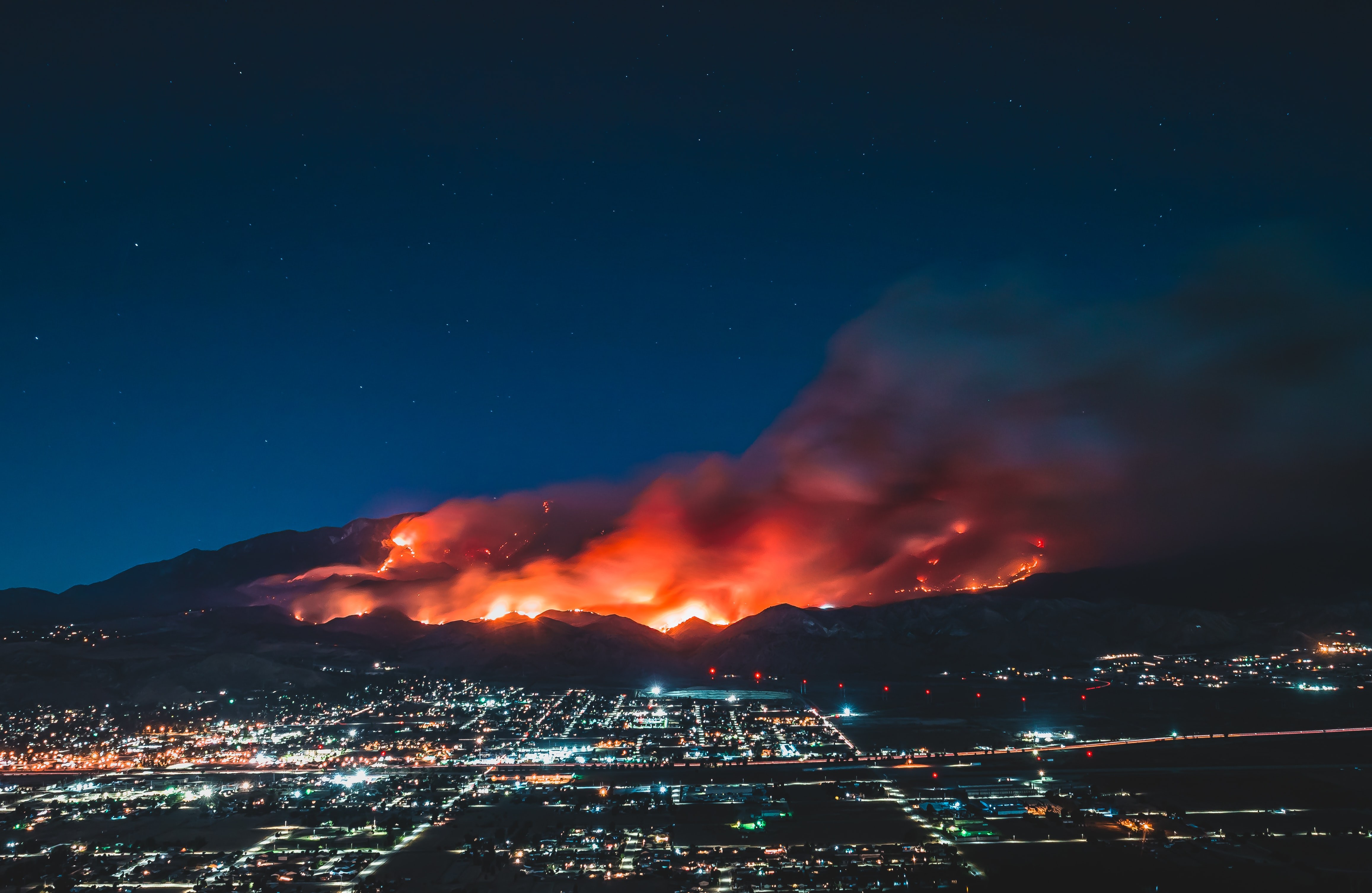This post was originally posted on ecoAmerica’s website.
In the present moment, and mere days before World Environmental Health Day on September 26, the intersection between climate change and preparedness is, sadly, quite clear. Scientists have warned for years that climate change could and would worsen weather-related events. Today, we see stark examples unfolding across the United States as the nation recognizes National Preparedness Month this September.

On the west coast of the United States, higher temperatures have created drier settings, altered wind patterns, and produced ideal conditions to fuel the wildfires currently devastating communities. These fires have uprooted and destroyed thousands of lives, and worsened air quality across the nation. On the east coast, the National Hurricane Center (NHC) has already named twenty storms in just the last three months (for context, an average hurricane season only produces twelve storms across a six month time frame). As the NHC has run out of names for the 2020 Atlantic hurricane season, they will begin to use the Greek alphabet for storm names, which has only happened once before in recorded history, in 2005. Climate change has not only driven these natural disasters but magnified inequities in health that exist due to systemic racism and injustices.
Public health responders, who are also balancing pandemic response efforts, are tasked with both preparing for and responding to these catastrophes. As the effects are observed mostly at the community level, local health departments (LHDs) are uniquely positioned to play an essential role in addressing the impacts of climate change-related events. LHDs understand their community’s unique assets, challenges, and stakeholders, making them a necessary variable to the climate change response equation. Unfortunately, many LHDs are also finding themselves understaffed and underfunded, leaving them with insufficient resources to carry out their essential work.
The National Association of County and City Health Officials (NACCHO), which represents the interests of over 3,000 LHDs across the country, works to support public health professionals in their climate change preparedness efforts at the local level. NACCHO conducts several activities and offers various resources, including:
- NACCHO’s Toolbox. This online toolbox is a collection of public health resources for LHDs, including tools for Preparedness, Climate Change, and more. Individuals with a MyNACCHO account may also submit a tool they would like to see in one of NACCHO’s toolkits;
- Funding for Local Projects. NACCHO provides funding for projects that address climate and health and preparedness efforts at the local level. Currently, NACCHO is offering funding for LHDs to: 1. Address needs of people with disabilities in COVID-19 preparedness planning, mitigation, and recovery efforts (applications close October 13, 2020 at 11:59 PM ET); and 2. Support ongoing local climate and health projects (applications close October 22, 2020 at 11:59 PM ET);
- Model Practices. NACCHO recognizes and shares outstanding local public health practices via the Model Practices Database. The application period for the 2021 Model Practices Program will open in November 2020;
- NACCHO’s Workgroups. Workgroups consisting of representatives from LHDs across the country and subject matter experts serve as ‘voices on the ground’ for NACCHO to stay updated on activities and challenges at the local level. Workgroup members also draft and review NACCHO’s policy statements regularly, to ensure NACCHO’s advocacy efforts are based on local perspectives. NACCHO’s new virtual community, open to anyone with a MyNACCHO account, is an additional way to share resources and updates: Climate Change Community of Practice;
- NACCHO Climate for Health Ambassadors. Through our partnership with ecoAmerica and Climate for Health, NACCHO offered the Climate for Health Ambassadors Training to attendees of NACCHO 360 as a pre-conference workshop. NACCHO and Climate for Health continue to support the Ambassadors in their actions and communications; and
- Preparedness Summit. Hosted each year, the Preparedness Summit offers presentations, poster sessions, and interactive town halls and demos that cover preparedness topics. On-demand content from the 2020 Preparedness Summit is available for viewing – register today to access the content.
As the only organization dedicated to serving local health officials in the country, NACCHO stands with LHDs and will continue to support their preparedness efforts as new challenges and information continue to arise. For questions or to learn more, visit NACCHO’s Preparing for Extreme Weather webpage, or email [email protected].





